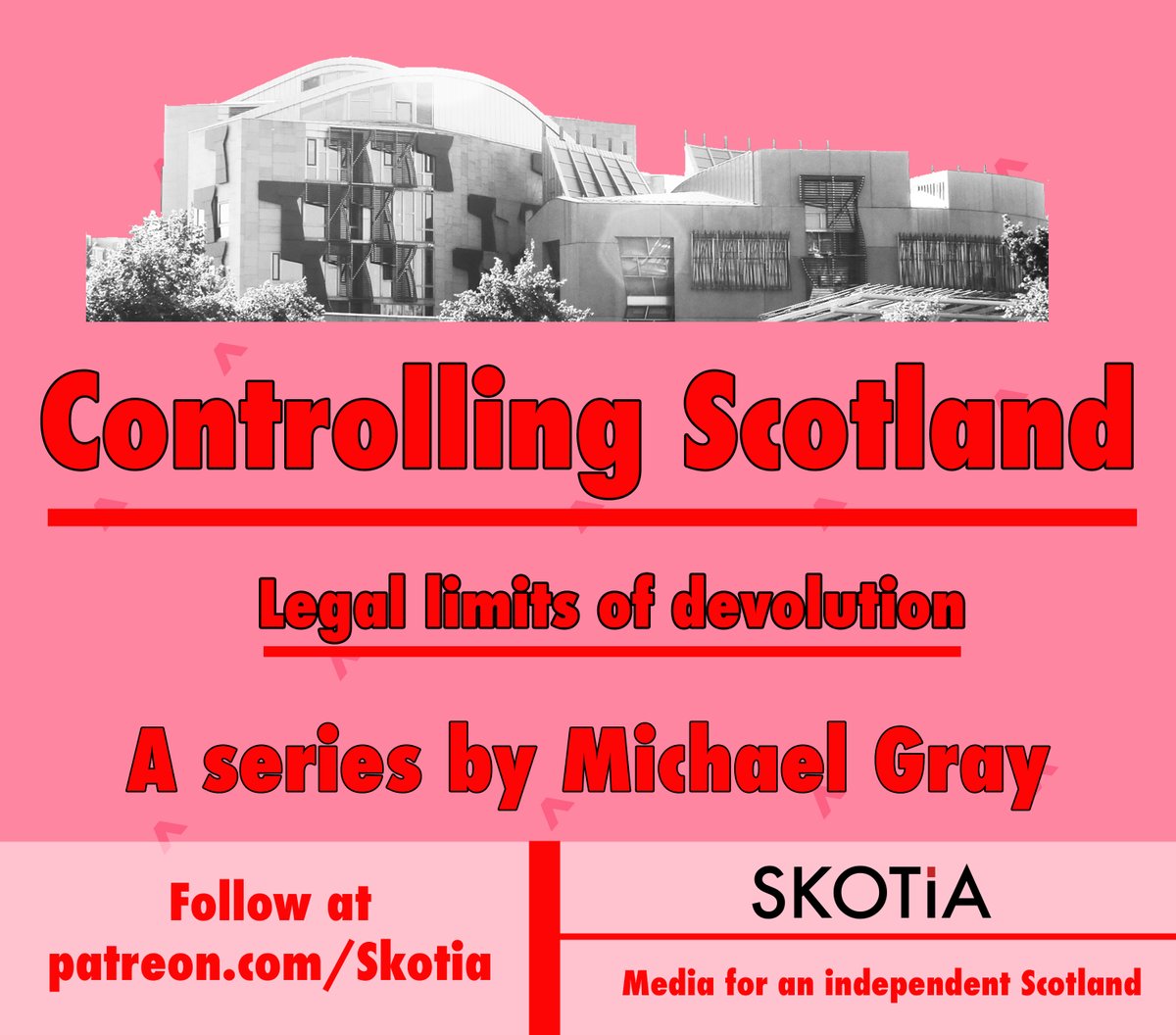Richard Keen, the 4th ever & 1st Tory Advocate General for Scotland, has resigned over Tory plans to break the law. This is a big development - a sign of breakdown in the UK constitution. But what is the Advocate General for Scotland & why does it matter? #LongThread! #skotia
The AG, a UK Government legal officer, has significant influence over the limits of devolution & what legislation can be passed in Scotland. This is a key consequence of the Scotland Act 1998. The AG can challenge legislation in the courts, which can lead to it being struck down.
The AG also communicates devolution & Scots law matters to UK Government departments. Separately the AG represents the UK Government as respondent in Scottish court cases, for instance in the Wightman Brexit case and Cherry prorogation case.
The Scotland Act gives the AG considerable power. Section 33 states the AG can refer any Holyrood Bill to the UK Supreme Court in the 4 weeks after its passed by Holyrood. In that time it can’t become law - so the AG can block (at least delay) legislation passed by Parliament.
A reference to UK Supreme Court is costly & time consuming. If a reference is upheld, then legislation (or part outwith competence) cannot become law. So the AG’s can delay, & if they win support of the court, veto Scottish legislation. No such restriction applies to Westminster.
To avoid this @ScotGov work with the AG to avoid a court challenge - they give AG a ‘note on legislative competence’ before Bills are even introduced at Holyrood. This seeks agreement that it& #39;s within Holyrood’s powers. It can mean Bills are changed at the behest of the AG.
Politics impacts the AG& #39;s role. A Labour Executive + Labour AG was uncomplicated. (1997-2007) Even with the 2010-15 coalition, Jim Wallace (Liberal) was AG & as a former Deputy First Minister he got & supported devolution. But now legal/constitution relationship is more fraught.
Brexit & Tory majority rule has led to tension. In 2018 AG challenged Holyrood legislation for the 1st time. The Brexit Continuity Bill, passed by Scotland’s Parliament, was then undermined with a retrospective amendment to the Scotland Act. We’re in a new era of legal conflict.
In political terms this was huge. The Tory Government, without electoral support in Scotland, had sabotaged democratically endorsed legislation at Holyrood for the 1st time. And they did it to force through Brexit - which was also rejected in Scotland. The AG was key to this.
With the & #39;Internal Market’ power grab, another Holyrood Brexit Bill, & the UKGov refusing to cooperate on a future independence referendum, more issues of legal friction are undoubtedly ahead for Scotland & devolution. The AG, appointed by Downing Street, will play a key role.
Keen’s resignation is in this context. Downing Street’s aversion to devolution & rule of law couldn’t be reconciled with being an ‘officer of the court’. Given surge in support for independence, it& #39;s symbolic that it& #39;s the UK& #39;s Scottish legal officer that couldn’t bear it anyone.
Anyone interested in political progress for Scotland should reflect on this. It& #39;s crucial. Why does the AG have so much power & influence over what the Scottish Parliament can do? Why does hardly anyone know or understand this process? How can we change it? I have ideas & plans..
A big part is with @TheSkotia. On our Patreon I’m publishing a monthly episode on ‘Controlling Scotland: the legal limits of devolution’. So if you found this interesting, please support us there & you’ll get far more like it in the months ahead! http://patreon.com/skotia ">https://patreon.com/skotia&qu...

 Read on Twitter
Read on Twitter


